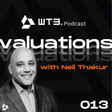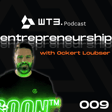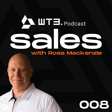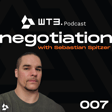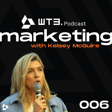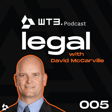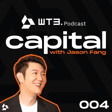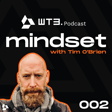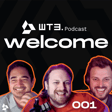
Web3 Strategy, Startup Scaling & Operational Excellence | James Bourque | WT3 011
"Communication, communication, communication. Community."
Dive into the world of Web3 startups with James Bourque, CEO and co-founder of Intu. In this episode of What The 3, James shares invaluable insights on building and scaling a successful Web3 venture, from effective decision-making to fostering innovation and adapting to the rapidly evolving tech landscape.
Discover how to navigate the challenges of emerging technologies, build strong teams, and make strategic decisions in the fast-paced world of blockchain and cryptocurrency. James discusses his journey from diverse industries to Web3, offering practical advice on finding product-market fit, managing risks, and cultivating strategic partnerships.
Learn about the importance of community building in the crypto space, effective communication strategies for growing teams, and how to balance innovation with execution. Whether you're a first-time founder or a seasoned entrepreneur, this episode is packed with actionable insights on startup funding, operational excellence, and leveraging emerging technologies like AI alongside blockchain.
Don't miss out on James's perspectives on the future of Web3 infrastructure, overcoming startup challenges, and fostering a culture of innovation. This episode is essential listening for anyone interested in tech leadership, cryptocurrency ventures, and the cutting edge of digital innovation.
Join hosts Charles Algar and Thomas Van Den Broek as they explore the intricacies of operating an emerging tech business with James Bourque. Subscribe to What The 3 for more expert insights on navigating the exciting world of Web3 and beyond!
